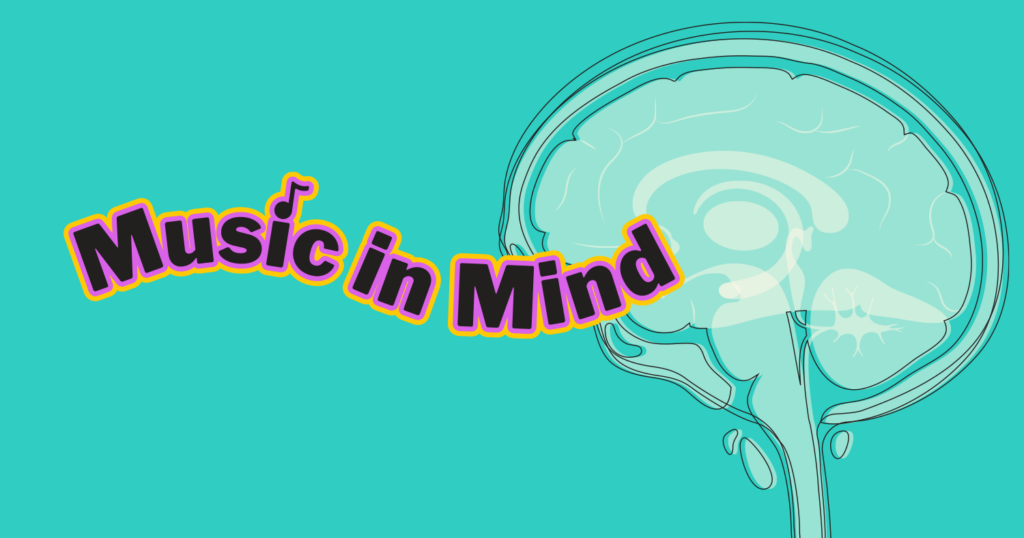Music in Mind Think Tank

Music in Mind: Cutting-edge think tank explores the healing potential of music for mental health
Music in Mind, a new, groundbreaking think tank from One Mind is convening experts next month to consolidate and advance the evidence for music’s role in preventing and treating severe mental illness.
Nearly one in five adults in the US live with a mental illness, an incidence rate that may be on the rise, particularly in adolescents. The corresponding growing need for treatment cannot be completely addressed by pharmaceutical interventions alone.
Music has long been used in clinical and community settings to improve mental health, and evidence of its efficacy is growing. An increasing number of studies show that music can improve the mental health and quality of life of people affected by severe mental illness, such as major depressive disorder and schizophrenia.
Recently, the National Institutes of Health (NIH) launched the Sound Health Initiative to fund new research on how music can be harnessed for health and wellbeing. However, more organization is required to help researchers and practitioners across different disciplines to coordinate and, synthesize relevant evidence, and establish best practices.
“You can’t solve these problems independently. You just can’t be your own lab,” said Susan Magsamen, who is a co-chair for Music in Mind and the Executive Director of the International Arts + Mind Lab (IAM Lab) at Johns Hopkins School of Medicine’s Brain Science Institute. “We need to think about this from a neuroscience, psychology, psychiatry, public health perspective. To me, this is really the future of medicine,” she added.
Magsamen is joined by fellow co-chair Eric Nestler, MD, Ph.D., a neuroscientist and the Director of the Friedman Brain Institute of Icahn School of Medicine at Mt. Sinai. “The scientific literature on music’s effects on the brain is vast but unwieldy,” said Nestler. “One objective of the think tank is to sift through all of the different studies, find common ground, and establish actionable goals for advancing the field in tangible ways,” said Nestler.
The Music in Mind think tank draws upon the numerous studies demonstrating that the brain—and behavioral health more generally—can be positively affected by listening to or making music. Established by One Mind’s Applications for Serious Psychiatric Recovery (ASPIRe) initiative, the think tank seeks to bridge the gaps between research and practice, as well as the gaps in communication between different research fields exploring the role of music and mental health.
As the first step of many, IAM Lab research director Tasha Golden, Ph.D. and her collaborators are documenting the current evidence for the use of music in treating serious mental illness already scattered throughout the scientific literature. This broad international scoping review will search for and assess studies on music-related interventions designed to treat or alleviate a variety of mental illnesses, including schizophrenia, major depressive disorder, generalized anxiety disorder, bipolar disorder, and post-traumatic stress disorder.
Music has long been used in the clinic or out in the community to improve mental health. Case in point: an initial literature search for peer-reviewed studies yielded nearly 12,000 research papers to start with, Golden said.
“We now are beginning to amass a body of evidence that is using fMRI, using EEG, using biomarkers, where we can really begin to understand non-invasively what is happening when someone is using art as a tool,” said Magsamen.
On March 12, 2020, over 20 of these experts will meet at Johns Hopkins University to generate ideas and recommendations based on the findings of the scoping review and their discussions. ** UPDATE – This think tank event is being postponed due to the Coronavirus outbreak. We will update this announcement as information becomes available.
Attendees of the meeting will include Brandon Staglin, the president of One Mind; Emmeline Edwards, the Director of the Division of Extramural Research at the NIH’s National Center for Complementary and Integrative Health; and Concetta Tomaino, the Executive Director of the Institute for Music and Neurologic Function.
“Coming out of the think tank, we hope to have a roadmap of all the pilot experiments we want to implement all over the country,” said Magsamen.
By synthesizing their knowledge and expertise, Music in Mind will advance their ultimate goal of implementing, evaluating and scaling an effective, practical, and accessible music program for youth at risk for or experiencing serious mental illness.
